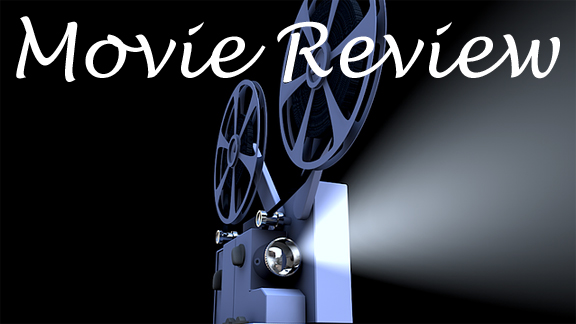The things that make “Prometheus” cool (A new “Alien” universe movie! And from “Alien” director Ridley Scott, no less!) also cause problems. I’ll go into spoiler-laden specifics later in this post, but suffice it to say that this “Alien” prequel feels a lot like last summer’s “X-Men: First Class.” It’s a slick, well-made piece of science-fiction in a comfortably familiar universe, but it will leave people familiar with the other nine movies in the “Alien/Predator” series to wonder if everything ties together — and then to realize it doesn’t.
Mining the ‘Alien’ connections
“Prometheus” gets a fair amount of mileage simply from the “Alien” connections. The crew of the titular science vessel goes to a moon with the prefix “LV,” as did the space-trucker crew in “Alien” (1979) and the military men and women in “Aliens” (1986).
The film touches upon Mr. Weyland (of Weyland-Yutani, the “Company” of Scott’s first entry; the fan-named “Space Jockey,” the dead alien in the pilot’s chair; and the Space Jockey’s horseshoe-shaped ship that the Nostromo crew investigates. Plus, David (Michael Fassbender) is a robot in the alphabetical tradition of Ash, Bishop and Call.

“Prometheus” (2012)
Director: Ridley Scott
Writers: Jon Spaihts, Damon Lindelof, Dan O’Bannon
Stars: Noomi Rapace, Logan Marshall-Green, Michael Fassbender
The film’s design is gorgeous, respecting H.R. Giger’s wonderful blend of the mechanical and the organic. Early complaints have centered around the fact that “Prometheus” looks more polished than “Alien,” even though it takes place slightly earlier. There’s a logical in-universe explanation for this, though: The Prometheus is a high-tech, Company-funded science vessel, the mission of which Weyland himself is invested in; the Nostromo is a private hauler cheaply contracted out to the Company.
It’s also possible that “Prometheus” takes place in a boom economy and “Alien” takes place in a bust economy; a similar argument is used to explain why the tech of the “Star Wars” prequels seems more advanced than the scrappier original trilogy.
“Prometheus” is by far the most science-fictiony of the 10 “Alien/Predator” movies, certainly more so than “Alien,” a gritty, bare-bones horror yarn that happens to be set in space. For this reason, “Prometheus” has some weight to it beyond the fun of spotting “Alien” connections. Writers Jon Spaihts and Damon Lindelof explore the origins of humanity and evolution, in both cases with a dark spin that allows the film to slot nicely into the world dreamed up by Scott and Giger 33 years ago.
Underlying horror structure
There’s also an underlying horror structure, and a few “Oh my god!” gross-outs that top anything the franchise has delivered so far — and this franchise has delivered some nasty stuff, including a half-alien, half-human that gets sucked out of a dime-sized hull breach in “Alien Resurrection,” along with the regular supply of monsters bursting from people’s midsections. Noomi Rapace stars in a particularly sweaty, bloody, disgusting scene that will make you perk up from the occasional slow spots where David rather dully explores the Space Jockey’s holographic-heavy technology.

Co-writer Lindelof is best known for “Lost,” which tended to get a bit repetitive, and it’s remarkable how many times the Prometheus crew regroups at the ship then returns for more exploring. The film tackles the evolution-of-horror theme from enough different angles that it seems like too many ideas are crammed into one film. “Lost” also had a problem with the writers’ big ideas outstripping the logic of the plot.
The cast of characters ranks somewhere in the middle among the 10 films. Idris Elba has a bit of space trucker in him as the captain, Rapace is an appealing heroine, Fassbender and Charlize Theron approach things stiffly (although only one of them plays a robot), Guy Pearce is unrecognizable in his role as Weyland, and the other characters don’t make much of an impact.
Overall, “Prometheus” doesn’t quite live up to the hype, but at least it provides interesting food for thought with its sci-fi elements along with a healthy dose of horror and thrills. It’s not as good as the elite works of art in the series (“Alien,” “Aliens” and “Predator”), but it’s better than the throwaway thrillers like the “Aliens vs. Predator” entries and the last two “Predator” films. I think “Alien 3” and “Alien Resurrection” are a bit underappreciated, and I’d put “Prometheus” somewhere in the mix with those films.
Continuity questions
Now, as for the continuity glitches (SPOILERS follow):
- In the comics, the Space Jockeys were established as aliens. In “Prometheus,” they are the technologically and biologically advanced ancestors of humans (indeed, you might even say they are the creators of humans, or the gods of humans; the Prometheus of Greek mythology created man from clay). What we thought was an exoskeleton is actually a space suit or sorts. I’m not too bothered by this, because the “Alien” franchise has a long history of ignoring comic-book continuity. Notably, in “Alien 3,” Hicks and Newt are killed off before waking up from cryo-sleep, thus wiping out all their post-“Aliens” adventures in the Dark Horse Comics. I get it: The filmmakers don’t consult with the comic writers. But they should at least respect the other films, in my opinion:
- Just as “Alien” ingeniously gave us the life cycle of the xenomorph, “Prometheus” takes us a few more steps back in the creature’s evolutionary line as we get a heavily Giger-inspired take on survival of the fittest. Here’s the problem, though: The “Aliens vs. Predator” films, “Predator 2” and “Predators” made it clear that the xenomorphs (and, for that matter, the Earth-based Weyland-Yutani Company that was generally mixed up with them) existed long before the events of “Alien.” Say what you will about the quality of those films, but to just ignore that major piece of lore is irksome.
- In “Alien,” the Nostromo originally thinks it’s hearing a distress call; later, the crew realizes it’s a warning from the Space Jockeys. “Alien” fans have generally thought of as the Space Jockeys as being good guys — or at least neutral players — who unfortunately fell victim to the xenomorphs but were thoughtful enough to broadcast a warning to passers-by. The problem is that “Prometheus” establishes them as reckless, amoral experimenters who aggressively want to wipe out the humanity they created. So why would they send out a warning? (My in-universe explanation: The Nostromo crew wrongly translated the pings as a warning.)
(Along this same line, one bit of continuity works pretty well. One could argue that Ash — as a Company-programmed robot — knows, in a general sense, about the events in “Prometheus.” Perhaps there was some Weyland Company information sent back to Earth through the space waves.)
Was anyone else bothered by the continuity glitches? Or are there solid, in-universe explanations for them? And in general, did you think “Prometheus” lived up to the hype we “Alien” fans have given it, or were you slightly let down?
Click here for John’s reviews of all the “Aliens” and “Predator” films.
Comments
Anthony: another glitch is the probes. while in “Prometheus” this probes can create virtual map of their surroundings and detect any lifeform and movement, in the “Alien” and “Aliens”, decades after the event of Prometheus, the Nostromo crews and colonial marines can only rely on their motion detector instead of these probes.# Posted By anthony | 3/14/13 9:39 PM
John Hansen: Good point. The explanation would probably be that the Prometheus, being funded by a super-rich guy, has cutting-edge tech, whereas the Nostromo, funded by a company that operates on the cheap, uses outdated tech. Still, I agree that it doesn’t make much sense. If space travel is affordable, then tech like that should be fairly standard I would think.# Posted By John Hansen | 3/16/13 10:49 AM

